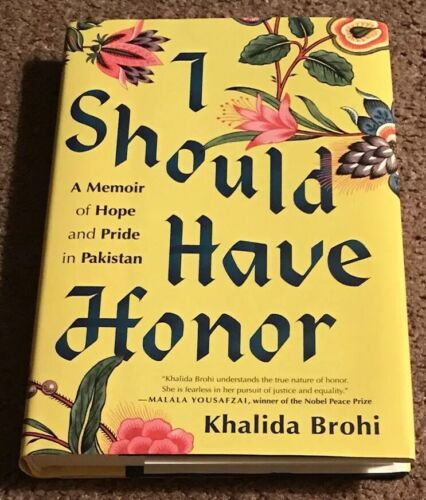In the early 2000s, in a rural village of upper Sindh, a young woman named Khadija is murdered by her very own paternal uncle in a custom known as honour killing. She was meant to have brought shame to her family and therefore had to be taught a lesson in order to save the family honour. Countless cases like this one are lost in history —there is very little reporting, and rarely does anyone face trial for such a killing in Pakistan.
Khalida’s ‘I Should Have Honour’ does not begin with this disturbing episode of her cousin —a very ambitious young woman being murdered. Instead, it begins with beautiful memories of her growing up in a rural village in upper Sindh and her parents’ struggle to move to the slums of Karachi to make sure their eight children go to school.
One thing common in all the early chapters of her book, is the concept of being a woman in rural Pakistan, with not much privilege but an urge to effect change in the culture that mainly associates concepts of honour and shame with women.
In a society where young girls are socialized to only become ‘good daughters, wives and mothers’, a woman who does not conform to these traditional roles, makes her own life decisions around education, clothing, marriage, and divorce, is considered deviant and a potential threat to ‘honourable society'.
While the number of women in higher education and in the workforce are slowly increasing in Pakistan, these numbers do not necessarily reflect women in the rural parts of the country and from the lower-income families.
Rural women may be part of the workforce to some extent as they work in the fields and as laborers but this does not make their lives any better. Khalida talks about these women who do not have any representation in Pakistan’s contemporary media, TV shows, and in the education, political and economic system.
Her book talks about how poverty makes gender roles and hierarchy even worse. In one instance she writes how growing up her mother feared about all her daughters' future, as for her, “daughters were a blessing, but they were a tough gift to cherish. Everyone wanted a piece of them, always.”
As much as her parents wanted to get all their kids educated, they also wanted them to get married at a certain age. But, Khalida believed in women’s financial independence before anything else. So, she made sure she worked hard enough and then made possibilities for others. Today, she not only runs businesses around rural women’s embroidery skills but also runs cafes with her husband in the US.
Throughout her book, she explains her two strategies to make women’s lives better; to educate them and let them have financial independence. And, “let no one steal your light’’ [let no one belittle you or your efforts].
While she writes about experiencing embarrassment because of poverty as a child, she talks about multiple instances when she faced defeat, helplessness, and frustration because she had no power, wealth, privilege, and a huge support system, unlike many of those she met at huge conferences, especially in Pakistan. She came from a very humble background. All she had were her education, her family’s support, and her ideas of change.
Working for and with the rural women on different projects, Khalida eventually got opportunities to travel and see very strong women in powerful positions from around the world —very contradictory to what she and many of us in South Asia are used to seeing.
When I first read about Khalida’s work, it was through UNESCO’s special publication for 2011, "Youth Driving Change." Although I came across this report in 2014, I tried more or less to follow her work since then. I still am not sure if it is the issue of honour killing that she really wanted to work on or it the incident of the murder of her cousin that pushed her to begin projects working with rural women, giving them opportunities to learn and earn. But, today, I see her as more of a successful social entrepreneur than an activist.
Years ago, when I came across her work, in many ways I felt that I could relate to her and the complexity of the issues, she wanted to tackle. For us, while there is so much uncertainty in Balochistan with political and economic crises, there is for sure a class division and gendered nature of the social system. Somehow, a lot of this is interconnected, yet very complicated when one plans to solve any of these issues.
With all this, her book does tell the story of an exceptionally strong and brave woman who does not give up. A key takeaway from the book is to keep going. Even when the path seems dark, there is always light on the other end.

Very well articulated!
ReplyDeleteThank you so much for this kind review! I am really happy you enjoyed the book. Love and blessings <3
ReplyDeleteThank you so much Khalida! You are always an inspiration!
Delete